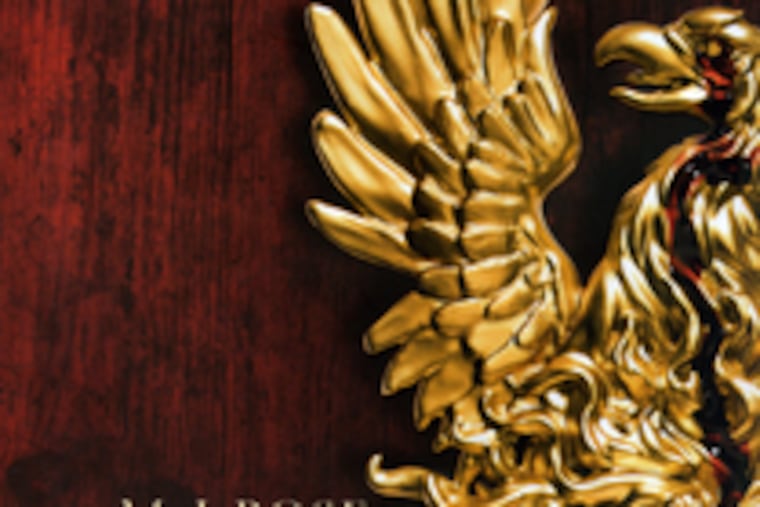Past lives and present dangers
Thirty years ago, a little-known author wrote a best seller that defined a new genre. Robin Cook's Coma was an exciting story about a young female medical student who uncovers a transplant scandal. It later came out that Cook had carefully analyzed the best-seller lists and identified about 20 key common features. He mixed these into one book, and the rest was history.

By M. J. Rose
Mira. 458 pp. $24.95
nolead ends nolead begins
Thirty years ago, a little-known author wrote a best seller that defined a new genre. Robin Cook's
Coma
was an exciting story about a young female medical student who uncovers a transplant scandal. It later came out that Cook had carefully analyzed the best-seller lists and identified about 20 key common features. He mixed these into one book, and the rest was history.
Of course, it wasn't as simple as all that: A doctor himself, Cook is an excellent writer, and was strongly motivated by his desire to highlight in a popular fashion the problem - then little-appreciated - of organ supply at a time when transplant technology was just becoming routine.
The Reincarnationist, the new book by M. J. Rose, reminds me strongly of that story, in that this racy read taps into several current top-selling themes.
Rose's novel opens as Josh Ryder, a photojournalist, is injured during a terrorist attack. While Josh is unconscious, he "is" Julius, a pagan Roman living in A.D. 391, guarding the vestal virgins from the emperor's soldiers, who are cruelly enforcing the Christian religion. After Josh comes round, these flashes of a past life occur frequently, if unchronologically. Hence, we learn that Julius was having an illicit affair with Sabina, head of the vestals, and was desperately trying to reach her at a tomb when attacked by the soldiers. Sabina was in charge of some secret memory stones, said to hold the secrets of all human experience if one had the mnemonic tools to understand the strange markings on them.
Yes, indeed, Dan Brown's The Da Vinci Code is clearly in evidence, reinforced by a long sequence near the start of the book when present-day Josh visits a tomb in Rome that may be that of Sabina, witnesses a violent robbery, and hooks up with attractive archaeology professor Gabriella Chase. The two are soon on the run in Rome (sound familiar?), trying to evade the shadowy pursuers who steal Gabriella's research papers, as well as the police, who suspect Josh of having a role in the fatal events at the tomb.
Back in New York, the home of Josh and Gabriella, Josh visits the Talmage Institute, where reincarnation is studied as a science, as he is driven to seek Sabina in her present-day guise. As well as his regular flashbacks to Julius' life, Josh also experiences a previous existence as Percy Talmage, a rich young New York socialite in the late 19th century, poisoned by his uncle. Can it be a coincidence that Percy is of the same family whose descendants run the institute and, it soon transpires, have an interest in the very same memory stones and tools that Sabina guarded?
In addition to Josh and Gabriella's attempts to discover who is behind the robbery and why Gabriella is being stalked, we meet Rachel and her uncle, Alex, an art collector. Rachel, too, is troubled by her strange sense of having lived a previous life, precipitated by her meeting with, and magnetic attraction to, a sinister fellow called Harrison. She also seeks help at the Talmage Institute, but is turned away because only children are studied there. I couldn't help smiling at the reason: If the director agreed to investigate adult claims of reincarnation, she would lose her "scientific" credibility. Before Rachel leaves the institute, she and Josh meet. Josh immediately feels a connection with her. Could they have known each other in previous lives? In desperation, she seeks his help to calm her own fears, precipitated by her "memories" of Harrison's past evil deeds.
The Reincarnationist is a clever attempt to mix and match current popular book trends, wrapping the whole into a supernatural package. Its twisting plot demands that the present mystery can only be solved by an understanding of the past lives of the characters. In trying to achieve this goal, the book is far too episodic: The flashbacks to ancient Rome are vivid enough, but the present-day characters and their dramatic dilemmas seem flat. As for the 19th-century subplot, it is merely distracting - until the final pages, when its relevance is revealed.
The book is far too long: A taut, suspenseful 300-page novel could have been crafted from the existing 458 pages. It is also badly written: Sentences are clumsily constructed; strings of paragraphs often consist of three or four words each. The characters are cliches of romantic fiction, constantly overwhelmed by exaggerated emotions.
As a mystery, the book simply doesn't work, partly because the identity of the criminal mastermind is obvious from the start, but also because the many themes detract from the one-dimensional "twist" in the dénouement.
The markings on the stones, stressed as vital throughout the book, are studied in a race against time by a late-appearing Indiana Jones-type character, but there is no tension in the cracking of the code, and we are not told how it is done or what it reveals. As a thriller, the book works better - so long as you are happy to suspend disbelief concerning the supernatural as well as to accept many coincidences.
Like Robin Cook, M. J. Rose has a superb instinct for marketing. She is, rightly, a widely admired figure among authors for all the marketing and publishing advice she freely provides. The Reincarnationist is written by someone with a great grasp of what sells. For me, however, it was neither absorbing nor exciting.